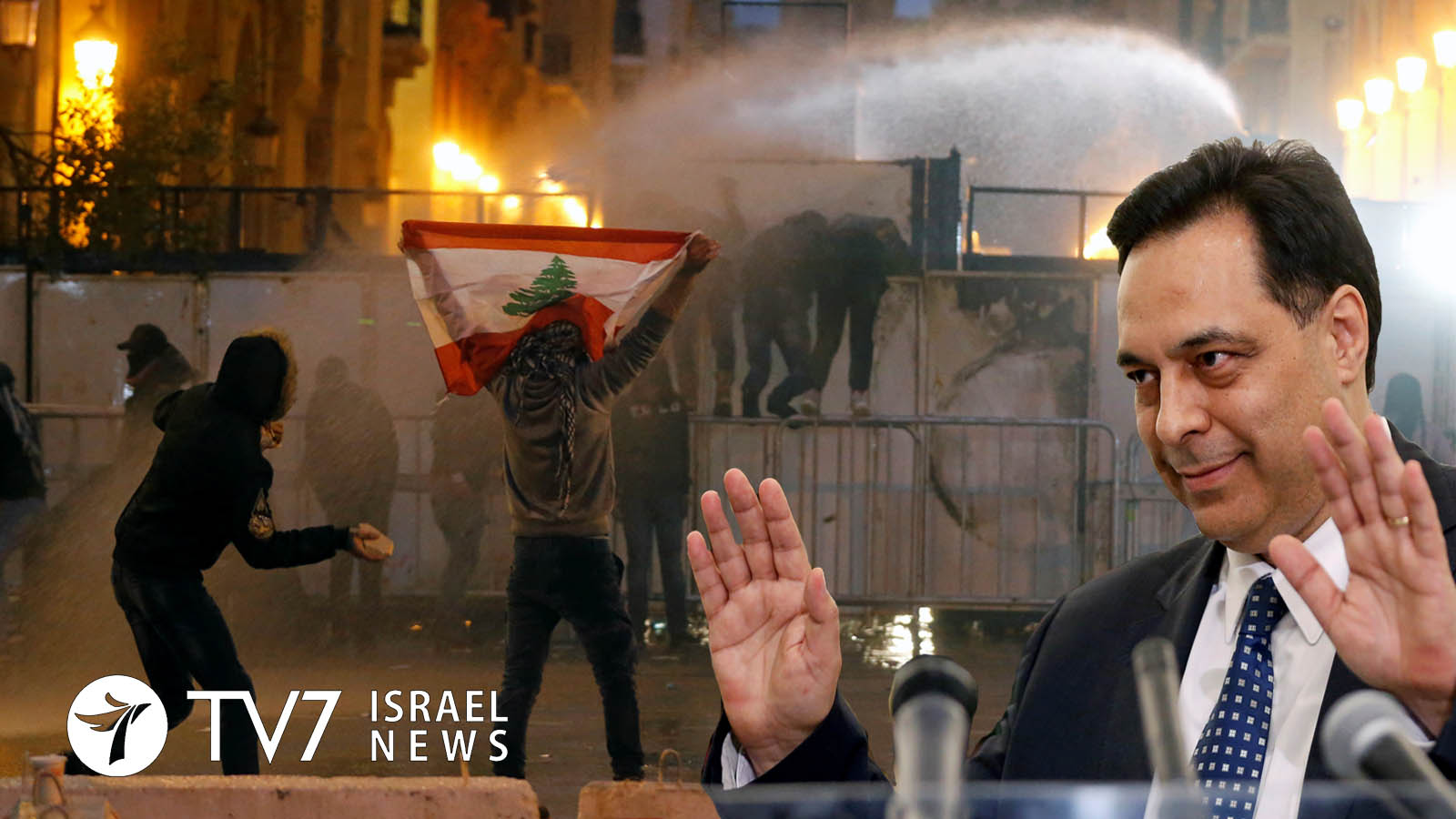Lebanon premiered a new government this week, three months after the start of mass protests that brought down the previous executive. The country had been without effective government until Tuesday (January 21) since Saad al-Hariri, the country’s main Sunni Muslim leader and a traditional ally of the West and Gulf states, resigned as premier in October under huge public pressure. President Michel Aoun tasked the government at its first meeting on Wednesday with restoring international confidence, toward the unlocking of funding to ease a liquidity crunch that hit the Lebanese pound, fuelled inflation and forced bank restrictions.
Faced with the enormous challenges of regaining citizens’ confidence while reviving a national economy in free-fall, recently-appointed Prime Minister Hassan Diab held critical talks with several foreign ambassadors as the heavily indebted government looks to rally support. Beirut’s goal is to reassure international donors it is serious about reforms to tackle its major financial crisis, which includes the imposition of controls by banks, a severely depreciating currency and rising levels of violent encounters during the ongoing demonstrations.
The Daily Star newspaper quoted Finance Minister Ghazi Wazni as saying that altogether, the country is looking to secure $4 billion to $5 billion in soft loans from international donors to finance basic purchases of wheat, fuel and medicines. “The entire international community has its eye on what this government will do,” he said in other televised comments. “What is its program, what are the reform steps, is it ready for support or no?” He added that “this injection will cover the country’s needs for one year.”
The new government must also contend with maturing Eurobonds, including a $1.2 billion bond due in March.
Foreign governments and institutions have demanded Lebanon enact long-delayed reforms to curb state waste and corruption before the transfer of any new financial help. U.S. Secretary of State Mike Pompeo said on Wednesday only a government “capable and committed to undertaking real and tangible reforms will restore investor confidence and unlock international assistance.” According to statements from Diab’s office, British Ambassador Chris Rampling conveyed London’s readiness to support Beirut, while underscoring that it “must show its commitment to reform that Lebanon needs urgently.” Two local media agencies reported European Union Ambassador Ralph Tarraf expressed agreement with Diab on the need for Lebanon to “focus on economic files, address the crisis and institute structural reforms.” A statement posted on the French Embassy’s website on Thursday made it clear that while Paris is prepared to assist Beirut in the economic crisis, “The difficult situation in Lebanon requires the new government to prioritise emergency measures and restore confidence.”
Lebanon won pledges exceeding $11 billion for a program of infrastructure investment at a 2018 international conference – conditional on such reforms which have yet to be implemented.
An evident political shift in the new government may hamper its fundraising efforts. It was formed with support of the powerful Iran-backed Hezbollah group and its political allies, whereas the major Western-backed political parties – including that of former premier Saad al-Hariri – are no longer part of the cabinet. Analysts believe Hezbollah’s increased influence over the cabinet may complicate its attempt to secure foreign funding – particularly from Gulf Arab states, who along with Washington and much of the international community, have officially designated Hezbollah as a terrorist group. While the Gulf Arab countries have provided aid in the past, they no longer appear willing to bail out Lebanon concurrent with their view of the Iranian-proxy as a threat.
According to Dr. Jonathan Spyer in an article published in the Jerusalem Post, “For the first time since the departure of Syrian troops from Lebanon in 1990, the latter country has a government in which only Hezbollah and its allies are represented. This is likely to have a significant negative effect on Beirut’s efforts to engage international partners and donors in order to alleviate the acute financial crisis facing the country.” After stressing that the development “will also impact on Israeli strategic planning vis-à-vis Hezbollah,” Dr. Spyer pointed out “Rather, in a future contest between Israel and Hezbollah/Iran, the state of Lebanon under its Hezbollah-dominated government will constitute the enemy. This, in turn, will enable Israel to exercise the full range of options available to it from a conventional military point of view.”
Many Lebanese civilians are also unhappy over the composition of the new cabinet. Protesters on Wednesday (January 22) managed to breach a small security barricade in parliament’s vicinity in downtown Beirut, setting on fire a tent for security forces, who responded with tear gas and water cannons. Others broke stone slabs off buildings in a luxury commercial district of Beirut to hurl at barricades under guard by security forces, who had blocked the route to the parliament. A civil defense worker told local media that some people had suffered slight injuries. Last weekend, hundreds were injured in similar clashes.
Mounting attacks on security forces combined with vandalism of state institutions and private property spurred the United Nations Special Coordinator for Lebanon Jan Kubis to write on Twitter, “This looks more like a political manipulation to provoke the security forces, to undermine civil peace, to fan up sectarian strife.”
Interior Minister Mohammed Fahmi declared that the state would not tolerate attacks on security forces, who he insisted have been deployed to protect people’s rights – including freedom of expression.
